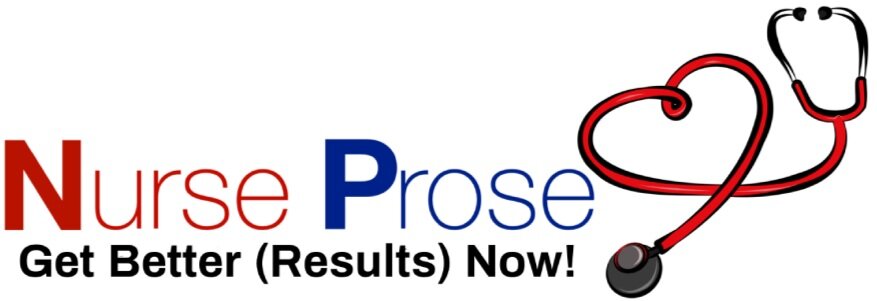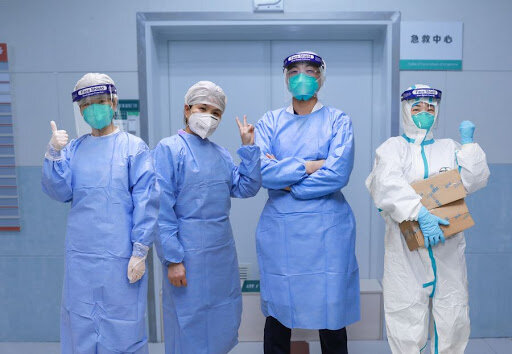Nurse Hiring Trends in a Pandemic World
A few months ago, healthcare trends and innovations experts could not have possibly predicted the implications of a global pandemic like Covid-19. Half a year before Coronavirus broke out, healthcare leaders who specifically focused on hiring talented graduates were among the frontline predictors of some of the most impressive evidence-based trends and predictions of 2020.
In the USA, Corona has changed and impacted each sector of the economy distinctively. In the healthcare industry, for instance, the pandemic resulted in a massive shortage of talented healthcare professionals because of the rising number of infection rates of the epidemic across the globe. Here are other nurse jobs trends in 2020.
Low Supply and High Demand for Healthcare Workers
At the moment, it is almost common sense to interpret the global scale of the need to increase healthcare nurses, and nothing has ever been closer to the truth. Coronavirus has changed 2020 trends in the healthcare industry like the world has never seen before – including the Influenza outbreak in 1918. Even as every sector of the economy needs the presence of a qualified healthcare professional, the supply of nurses is still too low to counter the spread rate. This explains why many retired, and older healthcare professionals are coming back to the job.
When it comes to the supply and demand of registered nurses’ talent, it is crucial to understand that the only way to determine demand is by measuring total jobs that have to be filled. On the other end, job outlook on the supply of hospital nurse jobs is determined by the depth of job seekers and a viable workforce. The interrelation of the supply and demand of workers creates the talent trade value. It is a situation where the healthcare markets target hiring candidates that have a combination of both skills and industry value.
Virtualized Recruitment Processes
Today, many countries have clearly stated and explained laws and regulations regarding social distancing as an effort to curb the rapid spread of Coronavirus. While this could be the current development of most of not all countries, it is crucial to understand that even healthcare hiring professionals had not planned in terms of hiring.
Now with the stringent social distancing rules, CDC guidelines for nurses demand that people have to stick to their in-shelter-places. Public health has never been a priority, as the past few months after the break of the pandemic. This meant that both leaders and candidates for job hiring had to re-invent new ways to get the best team on board.
In this case, the best course of action was conducting online interviews that were detailed enough to extract the skills, techniques, and knowledge that each hiring leader desired. Other virtual hiring processes like healthcare events and career fairs have been equally on the rise over the past four months courtesy of the spread of Coronavirus.
For this trend, you must understand that managing onboarding processes is not as easy as it may sound on paper. Healthcare experts in information and technology advancement had to go the extra mile to integrate everything into the system as well.
The Employers’ Brand Value
The darkness that Coronavirus has shown in all circles of life is far too detrimental to pass for ignorance. Employers in all industries within the economy now understand the value of their brand – especially when it comes to treating their employees.
Healthcare facilities or organizations that had the best referral rates and positive ranking before the outbreak of the pandemic are currently recording some of the highest economies of scale they have ever achieved. On the other hand, those that mistreated their shareholders disregarded the rights of their employees or continuously sided with the client irrespective of the sensitivity of the situation are feeling the pain of the vitality of brand value.
The idea here is simple. If you were an employee in a favorable, friendly, hospital, productive, and supportive working environment in a health unit, would you easily refer patients to your facility? Contrarily, suppose you were surrounded by constant criticism, less positive reinforcement and endless workloads, will you feel motivated to give that work your best of all?
If yes, would you still do the same under the threat of Coronavirus?
Flexible Training and Development
As the spread of the virus continues to be one of the worst 21st century nightmares, healthcare experts keep inventing new preventive and treatment options. For the convenience of each household within the economy, healthcare experts have recommended embracing the essence of nursing home nurse jobs. This way, employment for more healthcare workers interrelates with the affordable treatment strategies of society.
That is not all because other hospitals have converted some of the sections within the facility to accommodate the rising number of Corona patients. The worst part is that the pandemic has brought along a misinformed perception of “no sign no sickness” to misrepresent the implications of asymptomatic patients.
Many hospitals are on the frontline of converting their facilities to accommodate Corona patients, but only a few actually share with their nurses the plans that involve handling the virus. As it has come out earlier in this post, even though the demand is high, supply is low because even competent healthcare professionals fear that the current preventive and treatment strategies are not safe or open enough to assure them of safety.
With every dawn, it is evident that the urgency of the needs to train, develop, and demonstrate better treatment and preventive plans is inevitable.
Increased Nurse Recognition
Frankly, nurses have been underestimated for a long time. The ongoing virus crisis is sort of a blessing in disguise for nurse jobs because, finally, the globe begins to appreciate the work of nurses. For years, people have perceived nurses as mere subordinates to physicians and other experts in the field of medicine.
The current crisis has made it possible for the world to recognize the duty and commitment of nurses, thus appreciate them accordingly. Since the outbreak of the deadly virus, nurses have been working on the frontline to save as many lives as they can even though they risk their lives. For instance, the World Health Organization reports that as of February, 20% of health workers, mostly nurses, were infected with coronavirus in Italy.
In China, the major hotspot for the deadly disease, almost 4000 health workers were infected with the disease. The commitment of nurses to their mission continues to increase the rate of recruitment at health facilities. Long gone are the days when recruiters would turn down a nurse’s application due to some lack of some special qualification. The current situation points out that, ‘once a nurse, always a nurse.’ Though nursing requires intense training for qualification, a nurse’s practice has more to do with selflessness when it comes to saving lives.
An escalation in Registered Nurse Applications
Following medical statistics, the rate of application for registered nurses increased and is still escalating since the outbreak of the virus pandemic. According to evidence-based statistics from the National Institutes of Health, the Centers for Diseases Control and Prevention, and WHO, nursing applications have increased by 20% since late February. Though numerous nurses have been hired to deliver primary care, evidence-based statistics reveal that there is still a shortage of nurses to cater to all patients, including the ones having health complications that are non-related to coronavirus.
For that reason, several countries are now considering hiring final-year nursing students to apply their knowledge in providing evidence-based professional care. Keep in mind that coronavirus patients are not the only groups that need medical assistance. Health facilities are accommodating patients dealing with severe health complications such as cancer, coronary artery disease, lower respiratory tract infections, heart disease, diabetes, and stroke, to mention a few.
With the help of final year nursing students and new registered nurses, health organizations have the potential of improving clinical outcomes and public health while still catering to emergency services associated with coronavirus. The best part is that majority of final-year nursing students in numerous states and countries are willing to register for hospital nurse jobs, despite the risks involves.
Nursing Licensure Renewal Changes
At present, the majority of the states have declared the pandemic a state of emergency. Thus, there are several changes regarding nursing licensure. States and countries are lifting the restrictions on nurses’ licenses. For instance, many American states are responding to the current situation by activating the emergency-response licensure.
This should allow volunteer nurses, including the ones seeking nursing home nurse jobs, to come from other states and countries and practice their profession without being limited due to the lack of state-specific licensure. In conjunction with that, states are issuing temporary emergency licenses to allow potential health workers to offer assistance. Also, many countries are allowing recently retired nurses to renew their licenses without any restrictions. In some regions such as Massachusetts, nurses that have been out of practice for up to 10 years can renew their permits after undergoing a short-timeline regulatory review.
Below are some of the licensure changes as per state.
Wisconsin
The nursing licenses that would have expired during the declaration of the state of emergency remain active until thirty days after the crisis is over. The deadlines for license renewal were pushed back, thereby giving nurses enough time for the required emergency practice training.
Virginia
Licensed nurse practitioners from other states are allowed to practice their profession in Virginia. Licensed nurse practitioners from Virginia with not less than two years of clinical experience can practice their profession in the state without the need for a collaborative agreement.
New York
New York’s Department of Health continues to speed up the process of license renewal for nurses. Licensed nurses from other states who meet the state requirement for advanced complexity testing are allowed to take part in performing COVID-19 tests.
Michigan
Currently, Michigan state is waiving continuing studies requirements for licensed nurse practitioners. Also, the health sector is providing extensive training based on the CDC guidelines for nurses to assist health workers in delivering advanced care.
Massachusetts
Nurses who are licensed in other states can apply and receive the Massachusetts practice permit within twenty-four hours. Retired nurse practitioners are allowed to reactivate their licenses.
Illinois
Similar to Massachusetts, the Illinois Department of Health allows nurses with expired licenses of fewer than five years to return to work without paying any licensing fees.
Georgia
The governor of Georgia issued a declaration law allowing nurses from other states to get temporary licenses to practice their profession in the region.
Though coronavirus has caused impulsive adverse effects around the globe, the rate of employment in some fields have escalated. Nursing is one of the most benefiting careers during this time. Judging by the current job outlook, the nursing career accounts for nearly one-third of the total increase in employment.

